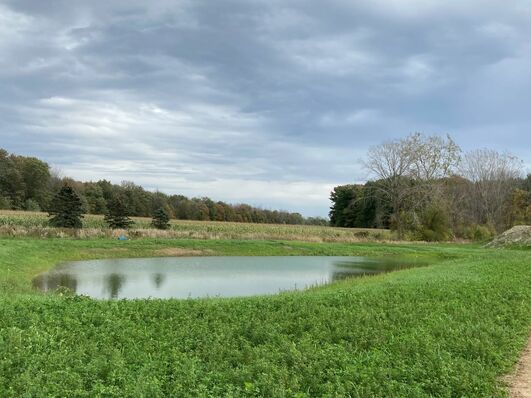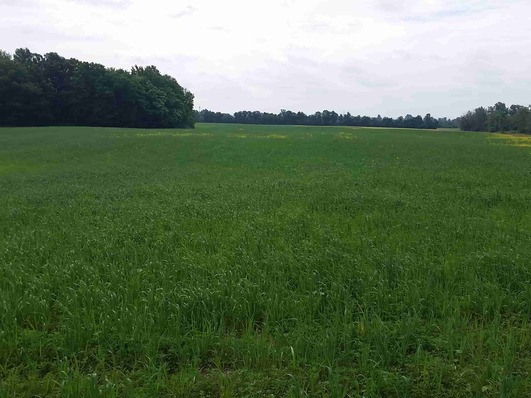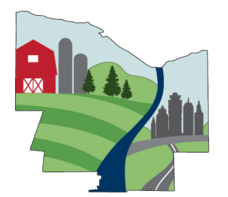Climate Resilient Farming
The Climate Resilient Farming grant is an exciting funding opportunity for farmers looking to fund projects that can help both the farm and mitigate the effects of climate change - often through carbon capture or carbon sequestration.
Check below for some of the work we've done under this grant!
Project Name: Irrigation System
Funding Round: 3
Year Began: 2022
Year Completed: 2022
Work was completed on the installation of an irrigation pipe on a dairy farm. The irrigation pipe will help the farm combat the increasingly common drought conditions brought on by climate change risking the production of their alfalfa fields used as a feed source.

Project Name: Irrigation Reservoir
Funding Round: 3
Year Began: 2021
Year Completed: 2022
The District assisted a farm by designing and implementing a 0.6 acre irrigatin reservoir on a dairy farm to hold an estimated water volume of 540,000 gallons for the purpose of storing water during periods of drought that can be used to irrigate the farm's alfalfa fields on the northern and eastern portions of the farm in order to sustain the farm's forage for the 200 cows present.

The reservoir acts as an adaptation to a continuously changing climate and extended periods of drought.
Project Name: Biomass Planting
Funding Round: 3
Year Began: 2017
Year Completed: 2023
The District assisted a farm by converting ~60 acres of farmland to hay production for a dairy operation. The new plants are expected to sequester carbon into the soil profile over the coming decades, using natural plant power to mitigate the ongoing effects of climate change.

This field is planted with oats and alfalfa for hay generation for dairy cows. By converting this land from cash crops to a permanent crop, carbon can be sequestered into the soil over time.
The goal of the Climate Resilient Farming Program is to reduce the impact of agriculture on climate change (mitigation) and to increase the resiliency of New York State farms in the face of a changing climate (adaptation). Soil and Water Conservation Districts use the Agricultural Environmental Management (AEM) Framework to plan and assess their environmental risks. Historically, farmers working through the AEM framework have only been able to receive funding through the Agricultural Non-Point Source program, for water quality concerns. Climate Resilient Farming fills those gaps by allowing farmers to proactively address risks due to the changing climate while also mitigating their greenhouse gas emissions. Mitigation Estimates of annual greenhouse gas emissions from agriculture (apart from agricultural energy use, which is classified differently) in New York State range from 5.3 to 5.4 million metric tons of carbon dioxide equivalent. Manure management is responsible for roughly 15% of the emissions; emissions from soils are slightly under a third of the total. This represents a major opportunity to reduce emissions.
While New York State is projected to increase precipitation overall, it is expected to come in short, extreme precipitation events in between mild droughts. This represents a major risk to farms, particularly those in low-lying or flood prone areas. Even very local downpours and cloud bursts can cause substantial damage to farms. This program capitalizes on the opportunities to mitigate agriculture’s greenhouse gas emissions while strengthening the resiliency of New York State’s farms. Click here for more information.
